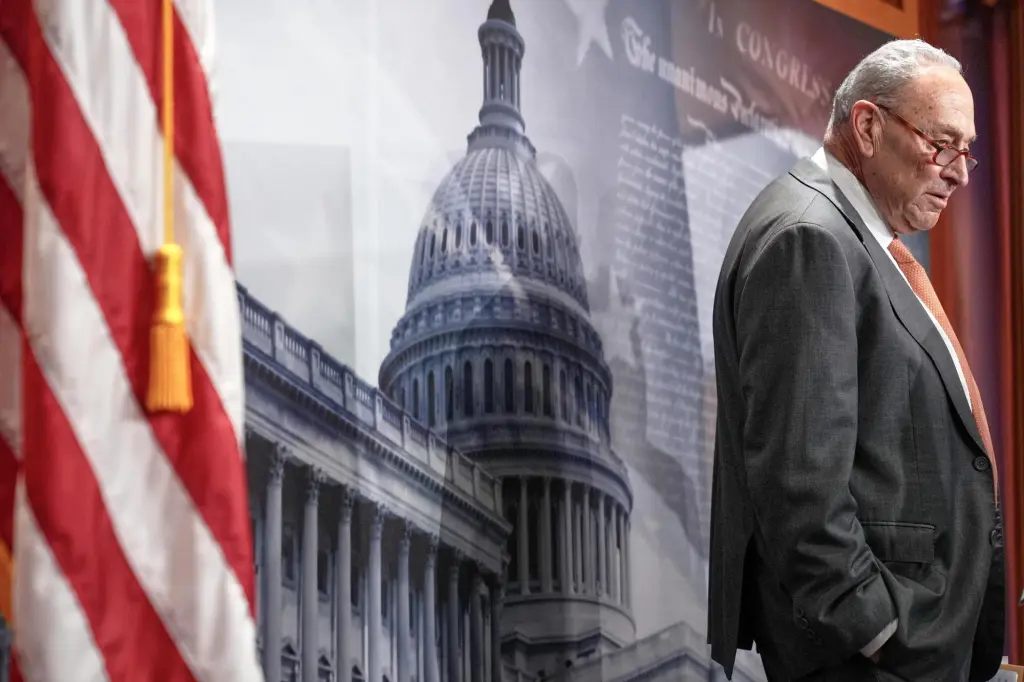
By David Price and Bob Etheridge
Another government shutdown is underway. It has many familiar features — widespread inconvenience and harm to the federal workforce and to millions of ordinary citizens and an acrimonious blame-game between the parties as to who is culpable. But this shutdown also has distinctive features which lead us to urge Democrats to use whatever leverage they have positively to shape the outcome.
Republicans bear the responsibility that comes with control of the presidency and both chambers of Congress. Because of the 60-vote threshold that a continuing resolution (CR) to keep the government open faces in the Senate, they need the concurrence of at least a few Democratic senators. This needs to be a cooperative endeavor, but they have not treated it that way. President Donald Trump and Republican leaders have instead demanded the votes of Democrats while explicitly refusing to discuss what their needs and expectations might be.
This shutdown is also distinctive because of the turmoil and distress being visited upon the country by Trump and his administration. This places a heavy burden on Democrats to use their leverage, at one of the few times and places they have such leverage, wisely.
What administration policies should they attempt to alter or reverse? There is much to choose from — the denial of health aid globally that is causing thousands of deaths at this very moment, the defunding of American education from Head Start to community colleges to university research, the pursuit of retribution and revenge by government prosecutors against those who have dared to stand up to Trump.
Congressional Democrats have wisely decided to focus the discussion on health care: Trump policies that threaten the lives and well-being of millions of Americans. They are asking Republicans to preserve funding that has brought coverage under the Affordable Care Act within reach for many, and to restore some of the draconian cuts to Medicaid under Trump’s One Big Beautiful Bill (BBB) — cuts that threaten the coverage of some 16 million Americans and the survival of hundreds of long-term care facilities and rural hospitals. They announced their conditions clearly and well in advance. “Cancel the cuts, lower the costs, save health care,” implored House Minority Leader Hakeem Jeffries. “That’s what this fight is all about.”
The request is reasonable, well within the bounds of what legislators in both parties have long professed to support. It targets Trump policies that have already been debated, with impacts that are well-known and widely dreaded. It is also well within the bounds of fiscal responsibility: all of the BBB’s cuts to Medicaid and the Affordable Care Act could be restored, and the tax cuts for families making less than $400,000 could be maintained, and $2.4 trillion would still remain, either for tax cuts for the wealthy or, better, for a reduction in the projected national debt.
In our experience, there should always be a burden of proof on a shutdown, given the damage and disruption it causes. Senate Minority Leader Chuck Schumer’s decision six months ago to let a CR go through was highly controversial, but he made a plausible argument that a shutdown at that time would play into the hands of Elon Musk and his Department if Government Efficiency (DOGE) operation, which was shuttering entire agencies and programs in defiance of lawful congressional appropriations. The present situation is markedly different. Office of Management and Budget Director Russell Vought has threatened to accelerate DOGE-type operations, but they are unlikely to be much contained or constrained by passage of a CR. Moreover, an immense threat to the healthcare of Americans is now more tangible and immediate. It is an uphill battle to reverse or prevent the damage, but it is one the opposition party can hardly shirk.
A shutdown is by any measure a mark of governmental failure, but what is happening or about to happen to our country is a far greater catastrophe. Democrats in Congress are amply justified in using whatever leverage they have to force a course correction, a mitigation of the damage to come. They should not be expected to provide their votes without consultation or compromise. President Trump and the leaders of the majority in Congress have it within their power to undertake the consultations needed to perform the most basic task of governance — keeping the lights on. It is their moral and constitutional responsibility to do so.
David Price represented North Carolina’s fourth district in the US House 1987-94 and 1997-2022. He chaired the Appropriations subcommittees on Homeland Security and Transportation-HUD. Bob Etheridge represented the second district 1997-2010 and served on the Homeland Security, Agriculture, and Ways and Means Committee.